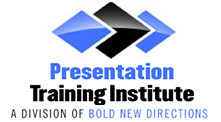Let’s be honest…no one goes to a presentation just for fun. Audience members attend presentations with certain expectations. Their time is valuable, and they want to feel like the presentation is worth their while. Therefore, as presenters spend time carefully selecting their material, they need to spend an equal amount of time ensuring the presentation meets the needs of the audience. Here are a few things that audience members expect from a presenter.
Someone Who is Relatable
Audience members want a presenter who understands them- someone who has insight into their beliefs and opinions. They want to feel like the presenter is on their level and speaking to them as a friend. When the audience can relate to the presenter, they are much more likely to feel engaged and the information will truly resonate with them.
To Be Informed
Audience members are attending the presentation for one main purpose- to be informed. Your first duty as a presenter should be to convey information clearly, concise, and easy to understand. You want your audience to leave the presentation feeling like they are taking a new wealth of knowledge with them.
To be Engaged
Most people assume that the presenter will be boring. That’s why audiences are hopeful that the speaker will captivate their attention through interesting content, humor, storytelling, and audience engagement. Even the most mundane topics become interesting when the speaker knows how to engage the audience.
To Be Inspired
The best presentations are the ones that leave the audience feeling inspired. This is often overlooked because the topic doesn’t feel quite legitimate but every speaker should inject meaning into their presentation, so they make a deeper impact on the audience. It’s not enough to simply spout out information. Audiences want to leave a presentation feeling motivated and empowered.
To Get to the Point
Audiences don’t have time to sit and listen to drawn out presentations. After all, many of them are giving up their time to be there so they want the presentation to get right to the point. While it’s certainly important to introduce yourself and your topic, it is also important to be mindful of the audience’s time and cut right to the chase as soon as possible.
The Opportunity to Ask Questions
A presentation is a chance for audience members to hear information directly from the source. During this precious “face time†they want to be able to ask questions and get clarification if needed without having to rely on email correspondence. Therefore, the presenter needs to set aside time for questions after the presentation. It is also important to provide a handout or some other form of communication so the audience members can refer to it.
